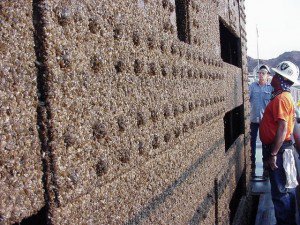The Economic Impact of Invasive Mussels
- July 15, 2010
- Carol Winkel

But what took decades to develop in the Great Lakes has bloomed exponentially here in the West. Quagga mussels were first found in Lake Mead, Nevada in early 2007, probably via a pleasure boat. The creatures attach to any surface, except copper, and their microscopic larvae are easily transported downstream in water currents or in water distribution systems. Hardy and prolific, the warmer Western climate has enabled quagga mussels to reproduce much faster than in the Great Lakes. With few natural predators in the U.S., they have already colonized the lower Colorado River system, and have now spread into California, Arizona, Utah, and Colorado. State and federal officials fear it's only a matter of time before these invaders contaminate the Columbia River Basin.
The Council's Independent Economic Analysis Board has just released a report on the potential economic impact of a widespread zebra or quagga mussel infestation in the basin. According to the report, "Under suitable conditions, [these] mussels can expand in numbers and locations with astonishing speed." Scientists also believe that calcium levels play a critical role in their growth and viability, which means they could thrive in some parts of the basin but not in others.
The report, which has been widely anticipated, gives the latest information on the economic risks to the region should they become established here, as well as recommendations for research and policies to limit their damage.


